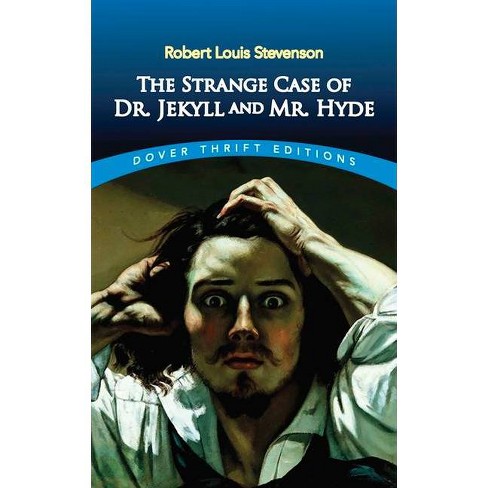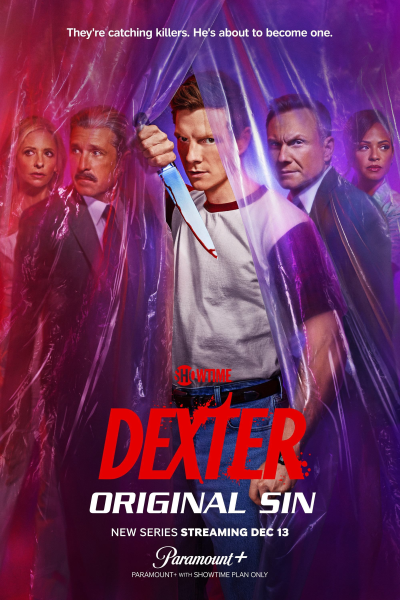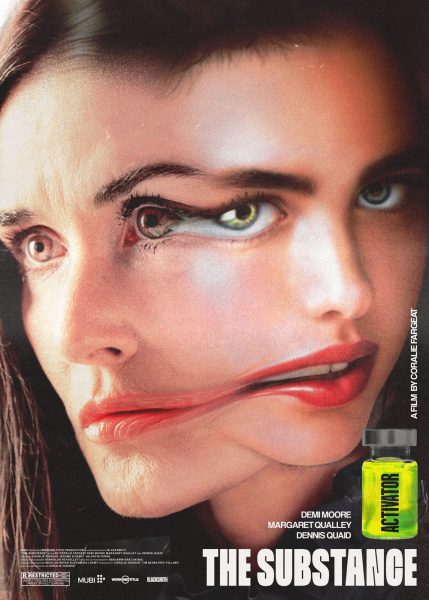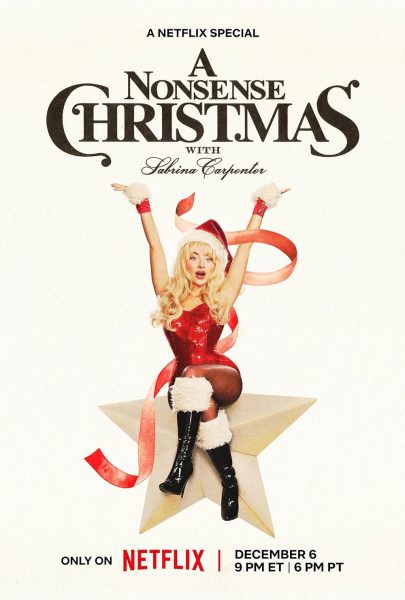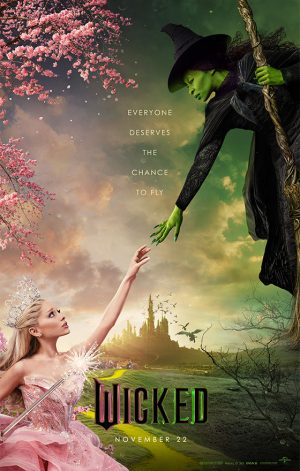The Champion’s spooky fall favorites
‘Jekyll & Hyde’ (1886)
By Mara Mellits
Every person has a devil and an angel that sits on their shoulders. They make decisions, argue and ultimately shape a person’s moral compass. They encompass the two sides of ourselves — our two personas.
In “The Strange Case of Dr. Jekyll and Mr. Hyde,” Robert Louis Stevenson explores exactly that: our complicated dual natures.
Like many Victorian stories of the time, this thriller explores the complexities between science and humanity. Dr. Jekyll and Mr. Hyde are two polar opposites never seen at the same time: Dr. Jekyll, a successful, quiet scientist who practices a quaint day life, and Mr. Hyde, a violent and rash man who lives his nights dangerously.
The secret? They are the same person, with contradictory traits coming alive during different times of the day — morning and night.
Because of society’s limitations, Dr. Jekyll cannot live his true life as he wants. He feels certain pressures because of the conventional lifestyle he lives in. So, he creates Mr. Hyde as his escape from his seemingly perfect life as the rich scientist. Mr. Hyde gives Dr. Jekyll the freedom he desires so desperately. His “evil” and “good” sides of himself are constantly at war with each other, which is why becoming Mr. Hyde is a release for him. By doing so, it allows him to keep his day job as Dr. Jekyll because he’s no longer confined by his pressures.
I read this novella at a very pivotal moment in my high school career during my sophomore year. I was unsure of my identity and of what path I should pursue. I didn’t expect to relate to a fictional character’s midlife crisis but it comforted me to explore Dr. Jekyll’s evil side with him. Its brevity also introduced me to other Victorian stories which dealt so much with the relationship between science and human nature. It’s especially relevant today with technology looking to take over every facet of life.
This fast-paced novella provides the perfect escape as a psychological thriller that ponders relevant implications and systems in our modern-day life.
‘Wuthering Heights’ (1847)
By Mara Mellits
Some love it, some hate it and others are forced to read it for their English class. But no one can deny that this book is rich in its drama and plot twists — which is why it’s one of my personal favorites.
“Wuthering Heights,” by Emily Brontë tells the story of a depressed man, Heathcliff, who acts out irrationally because of wounds from the past, selfishly doing whatever he wants.
The story starts with a wicked family who lives atop of a deserted hill — Wuthering Heights — with no one else around for miles, who take in a young dark-skinned boy. This rich family is plagued by misfortune causing the young boy, Heathcliff, to grow up quickly in an abusive environment.
Heathcliff’s adopted father favors him as does his adopted sister Catherine, whom he becomes quite close with. Meanwhile, his adopted brother is jealous of Heathcliff and is abusive towards him. This doesn’t help the prejudices Heathcliff faces for his dark skin color.
Heathcliff grows up to be a cynical man eventually leaving his home. More importantly, he leaves the one person who loves him the most: Catherine.
He leaves her because Catherine breaks his heart by marrying a young childhood friend, Edgar Linton so Heathcliff takes off in a fury. His built-up love for Catherine and angst at the world continues for the rest of his life, lashing out at others and ruining their lives because of his own pain.
The entire story is told from the perspective of the nanny, Ellen, who watched Catherine and her family grow up. This gives a unique perspective as she is telling the story of Catherine and Heathcliff to an outsider.
Ellen sees firsthand the loneliness characters experience from being so far isolated from civilization. Unlike many of the popular books written in this time period, the romantic age, the book isn’t about privileged characters living their lives according to societal norms. It sticks to the name of the period with romance interwoven throughout and dictating the characters’ choices.
The characters of “Wuthering Heights” are raw and unconventional with the creepy wilderness as the perfect setting for a spooky plot. Brontë perfectly encapsulates unlikable characters in a story that will have your mind spinning for days.
‘Coraline’ (2009)
By Mara Mellits
This childhood classic is sure to be on your must-watch list ahead of Halloween. Don’t be confused by the genre and the PG label — this movie is scary.
The heroine of the movie, Coraline (voiced by Dakota Fanning) discovers a secret door in her new house which takes her into a very similar yet very different world than her own.
Once she travels through the door, she ends up in the same place she started: her house. Yet, as she explores, she finds her parents the same except for one key difference — instead of eyes, they have buttons. At first, this doesn’t bother her because her new parents are much more attentive than her parents in her normal world.
Although her parents may look the same as they do in the normal world (their eyes aside), their personalities offer a cynical take on familial dynamics. In the other world, Other Mother (Teri Hatcher) is the true matriarch of the family, with her cunning eyes and evil smile. Other Father (John Hodgman) on the other hand, is sluggish, almost like he’s drugged and depreciates throughout the movie, in stark contrast to his wife who becomes more evil by the second — almost as though she is feeding off of his energy.
Meanwhile, the parents in Coraline’s normal world are distant. Even though they don’t radiate as much affection and energy as Other parents — they equally share responsibility.
The movie offers commentary on different parenting styles. No matter how involved a parent will be in their kids’ life — they’re bound to look bad. Too much participation and they’re evil; not enough and they don’t care about their kids.
Despite the strange aura from Coraline’s Other parents, she continues to travel back, weaving her way in between worlds. This excitedly prompts her to tell her new neighbors about her discoveries. However, they warn her, one specifically mentioning how a former aunt went missing and never returned when she was around Coraline’s age. Her neighbor warns Coraline to be careful and to think about returning to the other world.
Yet, Coraline decides to go back and is offered an ultimatum by her Other mother — stay in other world forever for the small price of sacrificing her eyes for buttons (to match her other parent’s button eyes). Coraline says she’ll think about this and when she tries to return to the normal world she can’t — she’s stuck in the other world.
This movie is suspenseful and is sure to put you in a spooky mood. Because of its rating, it can be viewed by anyone, making it the perfect family-friendly movie. However, viewer discretion is advised — this movie still scared me despite the PG label.
‘The Institute’ (2019)
Written by Genna Evans
Many of you may know more of Stephen King’s more well-known books such as “It” or “The Shining,” but arguably the best psychological thriller ever produced by King is “The Institute” (2019).
Twelve-year-old Luke Ellis seems to be an ordinary kid from suburban Minneapolis; however, one summer night he is unexpectedly kidnapped, silently loaded into an all-black SUV, and taken to The Institute.
Luke wakes up the next morning in a room that is parallel to his own, except for the fact that there is no window and outside of his bedroom door he hears other children in rooms parallel to their own. Behind these bedroom doors, there are children of various ages who have been kidnapped, similarly to Luke, for their abilities — they either possess the power of telekinesis (the power to alter objects’ state) or telepathy (the power to communicate or interpret thoughts to others’ brains).
Luke quickly fits in with the others who are there and finds out they are in the Front Half, where the subjects start out, only to begrudgingly graduate to the Back Half of The Institute, where no one is seen again. Throughout his experience, Luke quickly learns that Mrs. Sigsby, the director, is not there to make his stay, or any of the others’ stays, enjoyable. The government cover-up, which consists of extracting the hostages’ powers, only gets more sinister.
This book gives a creative insight into conspiracy theories that pull the reader in. King plays with tropes of government corruption and unknown kidnappers in a way that makes them seem new and fresh.
“The Institute” read like a classic, despite it being a relatively recent release. King truly takes the readers back to his earlier writing days with the addictive techniques such as a random plot twist or dropping in a new character that you weren’t expecting.
While the beginning of the book is a little strange in the setting of a rundown town that doesn’t really connect right away to the children in the institute, I think the in depth character development makes up for it, and honestly was my favorite thing about this book. I love when an author develops the character’s relationships with one another and doesn’t leave us hanging, which King does very well. I also loved the dive into the supernatural world — it’s hard to find books that aren’t cheesy but King does it in a way that’s realistic. For example, he keeps his supernatural in the realm of believable — or at least ideas that people are already conspiring about — such as government experiments or kidnapping. I give this book a well deserved five stars, and if you’re in for plot twists and heading down the dark steps into a Stephen King novel, I think you would agree.
Your donations directly fund the Lane Tech student journalism program—covering essential costs like website hosting and technology not supported by our school or district. Your generosity empowers our student reporters to investigate, write, and publish impactful stories that matter to our school community.
This website is more than a publishing platform—it's an archive, a research tool, and a source of truth. Every dollar helps us preserve and grow this resource so future students can learn from and build on the work being done today.
Thank you for supporting the next generation of journalists at Lane Tech College Prep!

Mara is a senior and this is her second year with The Champion. A creator at heart, Mara loves to read and write stories. She also loves creating art and...

Genna is a senior and this is her first year writing for The Champion. In her spare time, she loves to hike, hangout with friends and shop. She has a passion...

